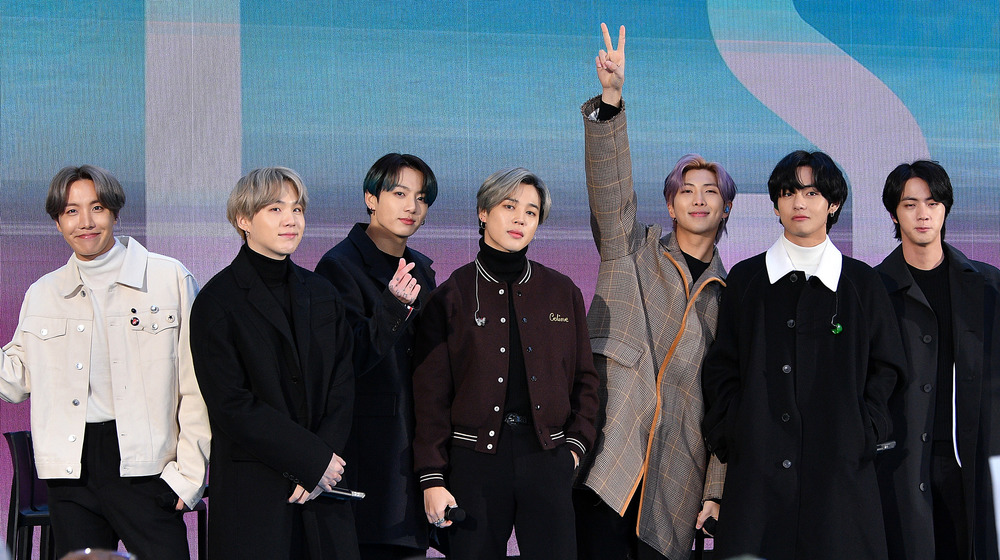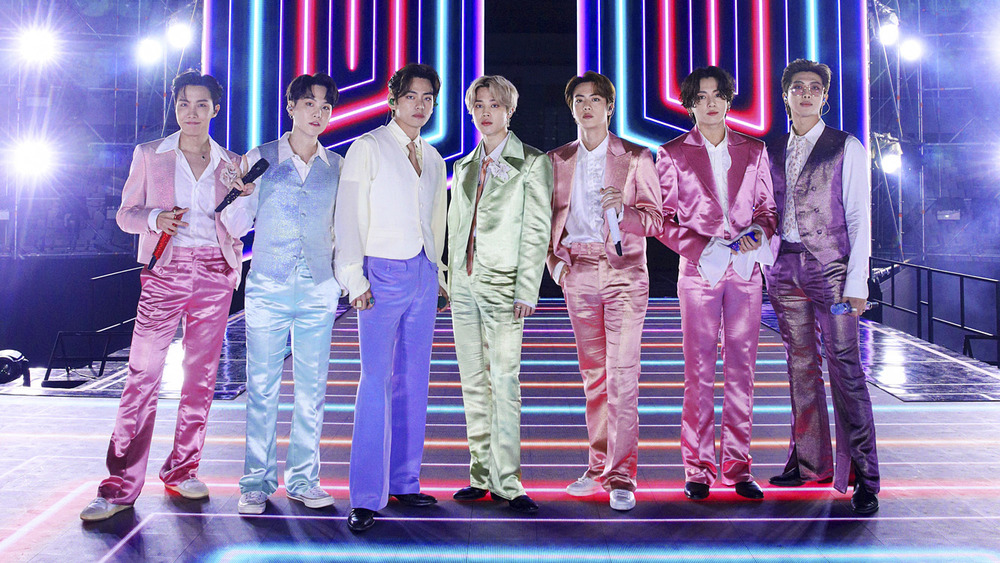The Major Award That Caused Controversy For BTS
Perhaps more than any other band in history, BTS has truly come to dominate the world. The group has long found success outside of their native South Korea, racking up hits in countries like the United States, China, Australia, and the United Kingdom. If you can think of a country, it's a safe bet that BTS has an ARMY there, waiting to defend the group against any perceived slight.
That visibility can also be precarious, though. Different countries may hold different ideas about what pop stars should or shouldn't say, and audiences can hold these performers to standards they're not even aware of. For example, fellow K-pop group Blackpink felt the wrath of Chinese social media in November 2020 when they posted a video of them holding a baby panda. The panda was on loan to South Korea from the Chinese government, and many in China interpreted the group's nonchalance as a sign of disrespect.
BTS ended up in a similar situation to Blackpink, but for something seemingly even more innocent: accepting an award. Keep reading to find out how this award stirred up controversy for BTS.
BTS's award reignited tensions from the Korean War
In October 2020, BTS was presented with the James A. Van Fleet Award by the U.S.-based Korea Society. According to its website, the award is presented "to one or more distinguished Koreans or Americans in recognition of their outstanding contributions to the promotion of U.S.-Korea relations." Judging by the warm reception the band has gotten stateside, they definitely seem deserving of the honor.
While accepting the award, which is named for a U.S. general in the Korean War, RM said, "We will always remember the history of pain that our two nations shared together, and the sacrifices of countless men and women," according to Esquire. The response caused a stir in China, however, when many fans felt slighted that the band did not mention the Chinese soldiers who died in the war. China fought on the side of North Korea, while the United States provided support to the South Koreans.
The angry response was swift; hashtags translating to "BTS humiliated China" and "there are no idols that come before my country" trended on Weibo, and the issue came in the way of sponsorships. The Global Times, a Chinese newspaper that the BBC described as carrying a "nationalistic perspective," claimed that the group's statement "hurts their feelings and negates history." Despite the controversy, however, it seems that BTS will continue on their path of global (musical) domination.


